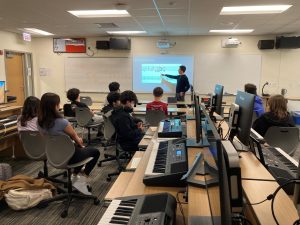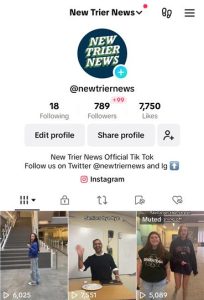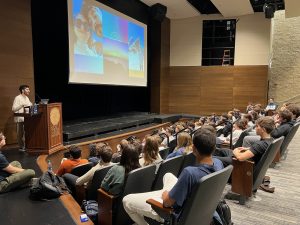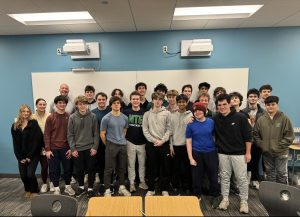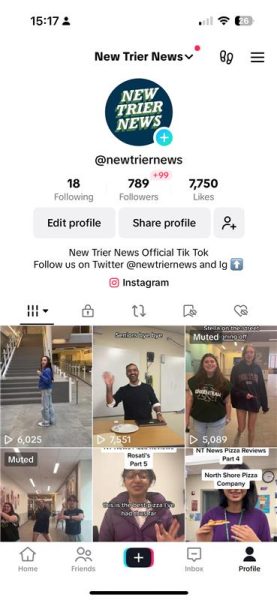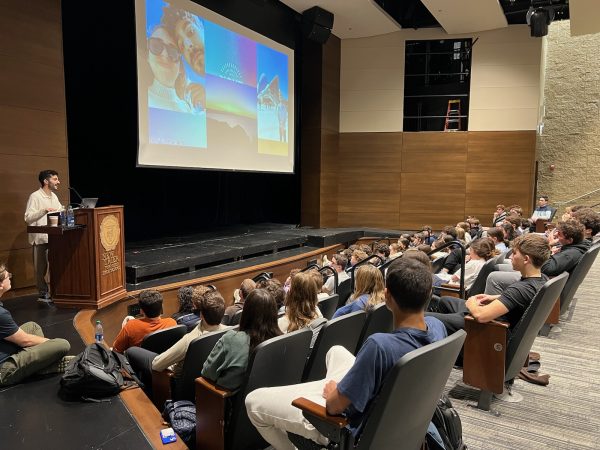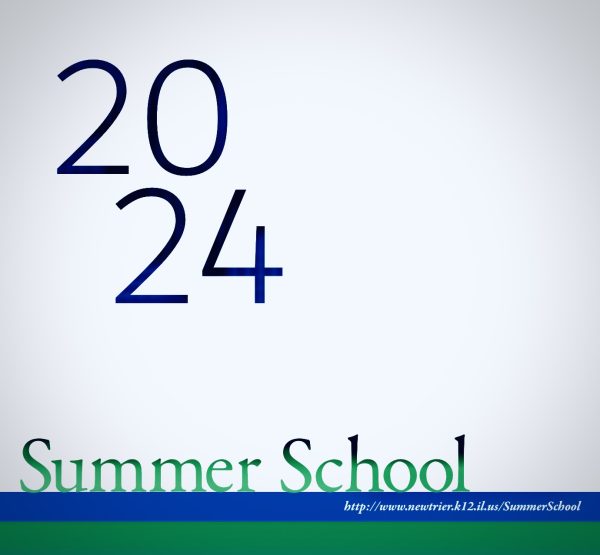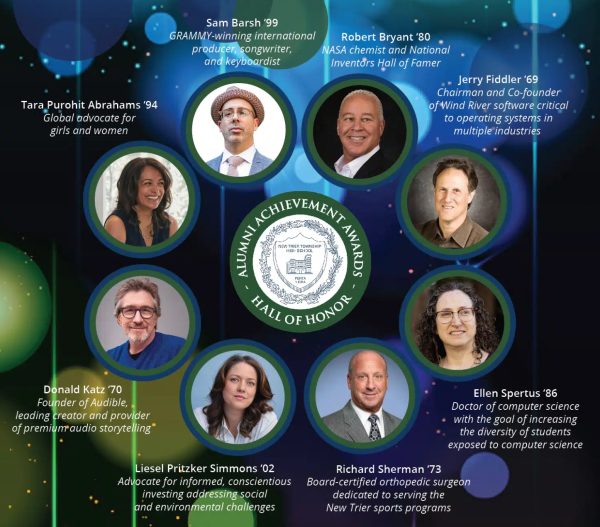Tech issues surround extensive iPad usage
iPads weren’t designed for large-scale implementation
January 29, 2016
The increased use of Apple products in the classroom has led to various IT problems, raising the question of where they stem from.
“There was some communication issue going on between Apple and the school. It was all kind of disorganized,” senior Kate Rosean said about the school handling her iPad’s problem.
During the third quarter of her junior year, the backlight of Rosean’s iPad inexplicably broke. She sent her iPad to Apple three times for a total of eight months before the device was finally fixed. When Rosean finally got her iPad back in mid-October of this school year, she realized that there was one tiny problem: it now only had half of its original storage capacity left.
French teacher Liette Brisebois, who has integrated iPads and Apple TV into her curriculum, agreed with Rosean about New Trier’s approach to using technology. “I was eager to learn, I threw myself in. But I was not prepared,” Brisebois said.
She explained that she learned by doing and often felt like she was doing improv, at which point she resorted to one-on-one help. For example, she often struggled getting the Apple TV to work and had to send for a support team member to help her.
Brisebois said that the school has been “fantastic” and “amazing” in providing this one-on-one support.
Yet she also explained that the school lacks a systemic approach, a clear vision of how technology can be implemented so that teachers and students are all on the same page.
“There is something to be said about people sharing the tool and knowing how to use the tool in common,” Brisebois said.
Brisebois thought that the school’s approach to technology was culturally influenced by America’s strong value on individuality. She explained that the support of individuals, as opposed to whole groups, is a very American thing. But she added that, “At the same time, there is a lot of power and support in commonality.”
According to New Trier computer technician, Moira Gitau, a part of the problem is that when the school first started integrating iPads, Apple didn’t intend them to be used on such a large scale. iPads were only intended as personal and individualistic devices, which was why managing them for the school was “ridiculous,” she said.
For example, at the time, the IT Department still used carts to set iPads up for students. Each cart could hold only thirty iPads and had a USB cord attached. This cord could be connected to a computer to set up the iPads. Every single one of the hundreds of iPads had to be set up in this manual way.
“It was very cumbersome. It didn’t always work. I could spend hours and hours trying to get them the way that I wanted,” Gitau said. She also said that Apple has since implemented a feature allowing iPads to be set up and managed more wirelessly.
The same applies to the Apple TV. Like iPads, an Apple TV was only intended as a personal device, which was why units crashed so often in past years. Gitau explained that the school’s network manager only recently discovered some tricks on his own to improve the connection. That’s why this year it has been crashing considerably less.
Gitau said that there are still a lot of issues she’d wish Apple would listen to more. She explained that the school talks to Apple representatives about these problems, but that the school’s complaints usually aren’t heard.
Furthermore, Gitau explained that the IT Department could actually do more to prevent iPad problems. It could, for example, make all iPads “Managed.” If an iPad is “Managed,” it means that the school has more control over it. For example, it allows the school to prevent students from changing their iPads’ names, which can often create issues downloading apps from Self Service.
This year freshmen iPads are “Managed,” yet Gitau said that the school doesn’t do this to upperclassmen. “We think of them as your personal devices and we’re not here to babysit you,” she said.
ESL Coordinator and English teacher Kurt Weiler, who uses iPads and Apple TV during class, is untouched by all of this. He doesn’t have any problems with technology.
The secret? “You can’t just walk into class cold and hope that it’s all going to work. You have to have done a trial run, you have to have planned out far enough in advance so you can test what it will look like,” he said.



